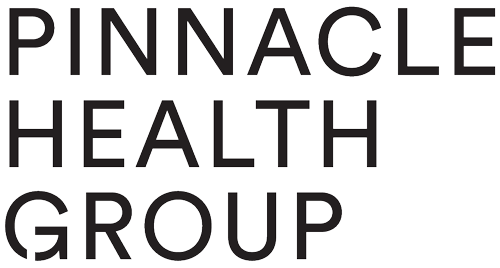by Josh Lambert
Today is World Mental Health Day – and an opportune time to recognise the importance of the workplace in recognising and building a “mentally well” culture.
It’s no secret that Mental Health has been the fastest growing health focus area across the western world in recent years, and this is also represented in the resources and attention allocated to mental health education and intervention in the work setting – after all, we spend on average one third of our lives at work these days!
However, even with such a big profile and improving awareness of its importance, one of the questions we often get at Pinnacle Health Group is “how can we practically improve the culture towards mental health in our workplace?”
Here are 5 practical solutions to consider:
-
Meditation
There is so much available evidence for the positive effects of meditation, and to point to just a few – studies from UCLA have shown that “meditators” have better preserved brains than “non-meditators” as they age; another recent study by John Hopkins proved that meditation matches anti-depressants for its ability to reduce anxiety, depression and pain; other research, including one by Mrazek, Franklin et al – concluded that just a two-week mindfulness course improved cognitive performance in students, and led to better scores in their exams.
Meditation will only keep engraining itself as a must-do in the workplace due to the facts – and we guide companies to take a novel approach to implementation, through methods such as:
- Meditation classes from our wellness centres
- Team rewards meditation sessions
- Blocking off a meeting room for 30 mins each week – and meditate
- Online guided meditation sessions available
- Quiet space on floors to enable employee meditation
Some companies even have 3 pm online meditation available from a teleconference room each day – imagine the next time you are having a 3 pm mood slump and you have this available to you!
-
Counselling or Coaching from a Psychologist – On-site or Tele-Health Consultations
Most organisations have some form of health check, health risk assessment, or early intervention program designed to recognise any variances to physical or mental health of employees.
The assessment of this is obviously crucial – but a big way we have helped organisation realise benefits of their health program is to offer on-site, or tele-health consultations with a clinical and workplace-specialised psychologist.
Following a “well mind” assessment, psychologists can be accessed by employees either at the workplace (usually available on a sessional basis), or better still, via a telehealth platform from their workplace, home, or abroad. These sessions are a proactive way to help employees to build resilience and mindful behaviour – and help identify their key personal flags for stress, anxiety or burnout.
-
Online Community/Hub/Platform
Gone are the days where simply telling employees to be “mentally well”, or broadcasting information on mental health is best practice. Interactive online platforms or community hubs (usually linked to staff intranet) are ways to gamify and make being mentally well fun and engaging.
Practical functions such as questionnaires or surveys, games and challenges, and continually updated content is a fantastic way to champion a mentally well culture. Its also a great forum to promote any events or services that your organisation is planning.
-
Wellness & Fitness Services
The natural release of endorphins with any physical exercise is a fantastic way to improve mental wellness, and lead to feelings of accomplishment, calm, clarity and engagement. The feeling of euphoria is often described after exercise of various intensity – and the ability for employees to break up the working day with exercise has huge benefits on productivity, and concentration alone.
Having convenient access to exercises amenities – and more sanctuary-style services such as massage, yoga and beauty therapy – can be a real positive force to improve employee mental wellness (and builds their love of the work environment too!)
-
Workplace Design
According to a large study conducted by the World Green Building Council’s “Better Places for People” campaign, simple steps like improving air quality, increasing natural light and introducing greenery – those which typically have environmental benefits such as using less energy – can also have a dramatic impact on the bottom line by improving employee productivity and wellbeing, and reducing absenteeism, staff turnover and medical costs.
At Pinnacle Health Group we consult organisations on the new WELL Building Standards – a set of criteria that buildings can be assessed on to recognise the key elements of air, light, water, mind, innovation, fitness, nourishment and comfort.
With sustainability a key factor for workplace design these days – the benefit to workplaces in attending to the key WELL Building elements is also a great way to address mental wellness, and employee engagement through design.
Even with older-style buildings with less opportunity to adjust light and air elements – some small adjustments such as colour schemes, breakout areas, sit-to-stand desks and quiet areas can have a positive impact on mental wellness of your employees.
Happy World Mental Health Day to you all – and start thinking of how mentally well your workplace can be!
References:
Eileen Luders, Nicholas Cherbuin, Florian Kurth (2015).
Forever Young(er): potential age-defying effects of long-term meditation on gray matter atrophy
Frontline Psychology.
Madhav Goyal, Sodal Singh (2014).
JAMA, 174:3
Michael D. Mrazek, Michael S. Franklin, Dawa Tarchin Phillips, Benjamin Baird, Jonathan W. Schooler (2013).
Mindfulness Training Improves Working Memory Capacity and GRE Performance While Reducing Mind Wandering.
Online Volume 24:5. Clinical Psychology
